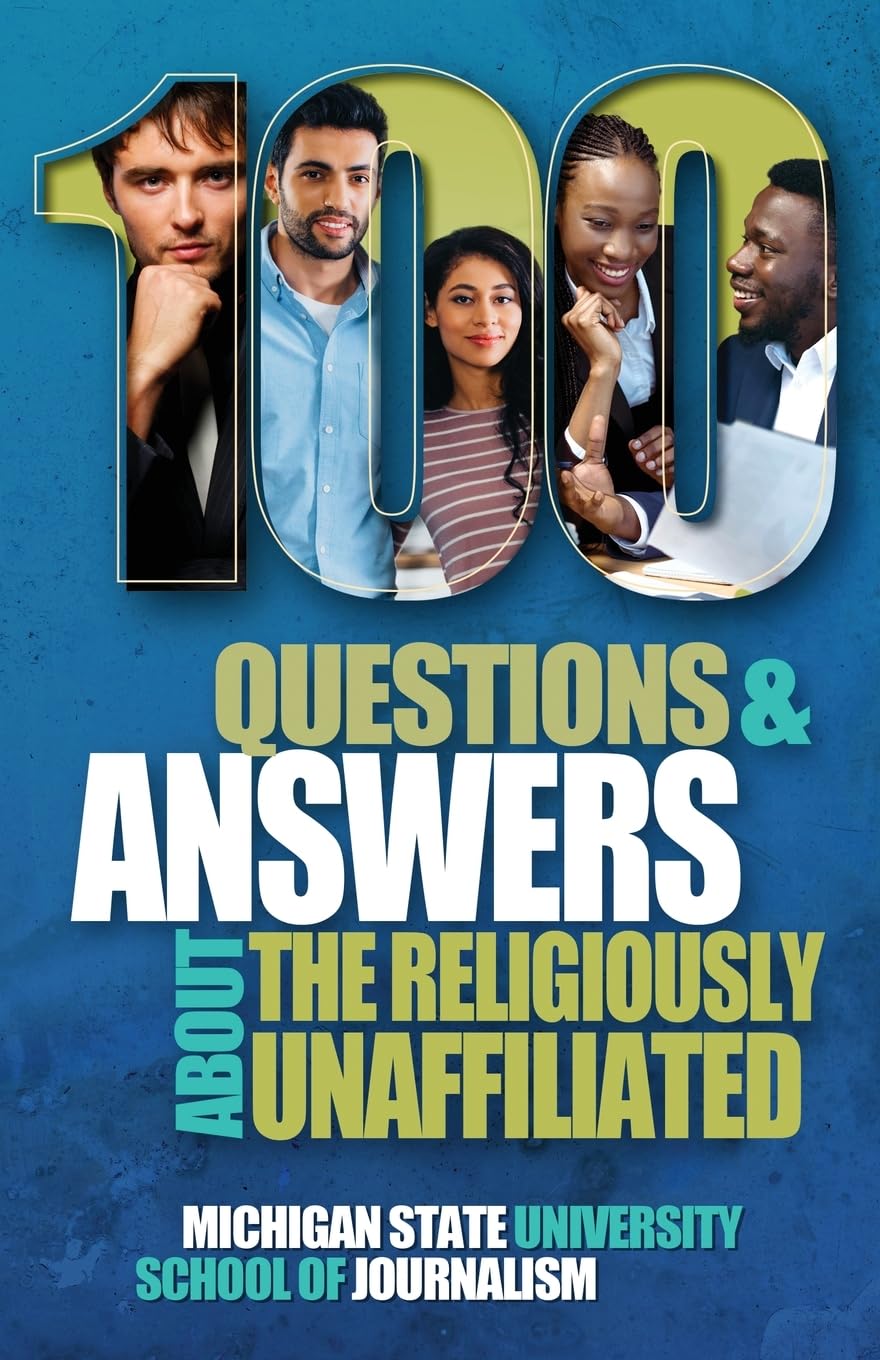By JOE GRIMM
Head of the MSU Bias Busters project
Whew! Our team of Michigan State University School of Journalism students—known as the Bias Busters—produced our latest book just in time!
For weeks now, journalists and religious leaders have been running in every direction after the latest reports on the number of religiously unaffiliated Americans.
The same new Pew research data is being described in seemingly opposite ways. Headlines have included:
Fox: Religious ‘nones’ decline for first time since 2016, Pew study finds
NPR: Religious ‘Nones’ are now the largest single group in the U.S.
Nether headline is wrong.
While the proportion of religiously unaffiliated people in the U.S. population has declined slightly, other groups, notably Christians and Catholics, declined more. So, everybody wins— or loses.
Reactions within Christian religions to bringing people into churches varied as much as the headlines.
In The Baptist Paper in Alabama, Mark MacDonald wrote, “As believers, we need to decide if we try to reach this unchurched group, who are ‘characterized as morally directionless,’ or shake our heads and not even attempt the challenge. I would argue the question is not ‘if’ but ‘how.’ Remember, nones are not all the same, but they all need Jesus.”
MacDonald is executive director of the Center for Church Communication. He is also a speaker, consultant, author, church branding strategist for BeKnownforSomething.com. MacDonald proposes building bridges with community-helping ministries, sharing stories, leveraging social media, extending inclusive invitations and demonstrating relevance to daily life.
Michael Pakaluk, a social research and business professor at the Catholic University of America, took a harder line in an interview with the Catholic News Agency. He told CNA, “The fields are there and are ripe for the harvest. People recognize that atheism is its own form of religion. It’s harsh and unattractive. Agnosticism was never widespread and has always been limited mainly to educated classes.”
He said that if people identify as “nothing in particular”—“then in my view they are right back where the church started, among pagan nations, and that is great for us, for evangelization.” Pakaluk told CNA the rise of religious unaffiliation is due to “secularized education and the trauma and poor example of divorce.”
Despite his concerns, or maybe because of them, Pakaluk said now is a great time for evangelization. He said, “Catholic parents should think twice, or three times, before they send their children to any colleges except faithful, vibrant, Catholic colleges.”
Writing for Crisis magazine, historian and author W. Crocker III took a harder line. “Before we can reach the adult nones with the good, the beautiful, and the true, we need to shake them out of their willed imbecility. … Until that is achieved, arguments about truth will miss the mark. Christian humility, charity, and generosity will not move them. … You want to win the nones? Treat ’em rough.”
The evangelical Christianity Today ran this headline, “Why Evangelicals Aren’t Afraid of Being Outnumbered by Nones.” In the article Erik Thoennes, professor and department chair of biblical and theological studies at Biola University, said his Generation Z students are turned off by church marketing or bids to make it cool. They want authenticity.
He said he goes with traditional strengths such as the power of Christ. As the article concludes, he is quoted, “I don’t have to stay atop of the latest trends to make sure dechurching doesn’t happen at my church.” He is pastor of Grace Evangelical Free Church in La Mirada, California. He said. “It’s simple: Stay focused on Jesus.”
Got questions about our minority friends, neighbors and coworkers?
There are now more than 20 guides in the Bias Busters series. Which ones would you like?

